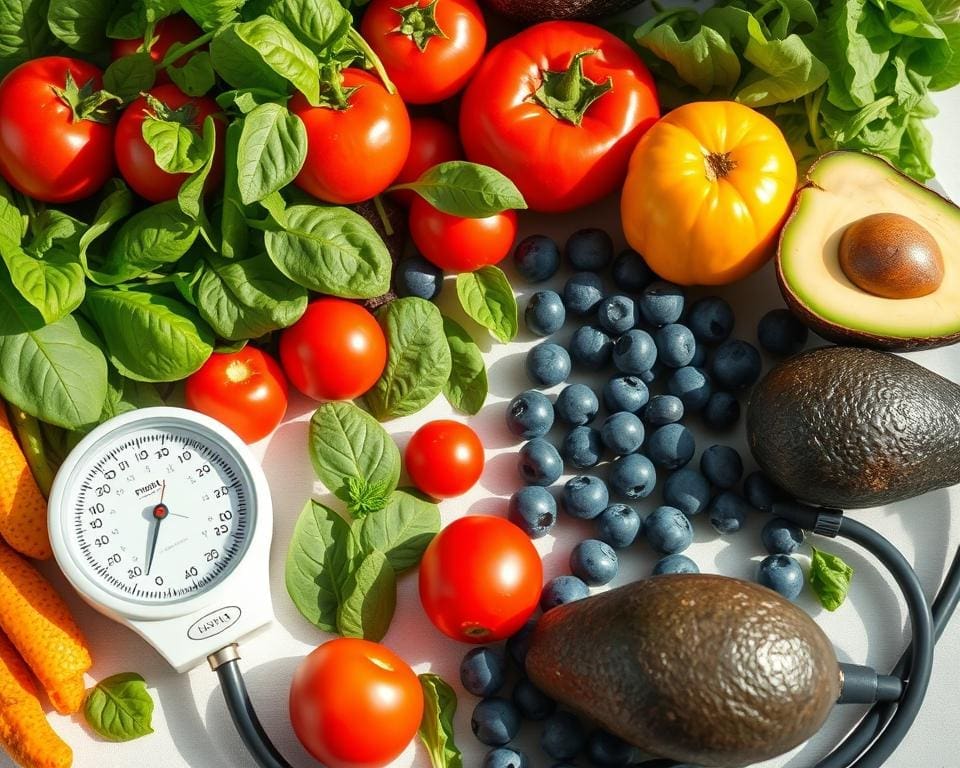In today’s fast-paced world, learning how to manage blood pressure through diet is crucial for maintaining optimal health. A healthy diet for hypertension can significantly impact your overall well-being and reduce the risk of serious cardiovascular diseases. Making informed food choices is not just about satisfying hunger; it’s about nurturing your body and empowering your heart. This article will explore effective strategies for blood pressure management, guiding you towards a lower blood pressure diet that promotes longevity and vitality.
Understanding Blood Pressure and Its Impact on Health
Blood pressure plays a crucial role in maintaining overall health. Understanding what blood pressure is and the various causes of high blood pressure can empower individuals to take control of their well-being. The significance of blood pressure management cannot be overstated, as it directly influences the risk of serious health issues such as heart disease, stroke, and kidney failure. Embracing effective dietary tips for managing blood pressure can lead to substantial improvements in health outcomes.
What is Blood Pressure?
Blood pressure refers to the force exerted by circulating blood against the walls of blood vessels. It is typically measured in millimetres of mercury (mmHg) and is expressed in two numbers: systolic blood pressure (the pressure during heartbeats) and diastolic blood pressure (the pressure when the heart is at rest). Maintaining a healthy blood pressure level is essential for the efficient functioning of the body.
Causes of High Blood Pressure
Several factors contribute to the causes of high blood pressure. Key contributors include:
- Obesity
- Lack of physical activity
- Smoking
- Excess alcohol consumption
- High sodium intake
Identifying these factors is the first step in addressing high blood pressure and implementing lifestyle changes.
The Importance of Blood Pressure Management
The importance of blood pressure management lies in its potential to reduce the likelihood of life-threatening conditions. Controlling blood pressure can minimise the risk of heart attacks and strokes, ensuring long-term health. Regular monitoring and a proactive approach are vital in maintaining optimal blood pressure levels.

How to Manage Blood Pressure through Diet
Adopting a thoughtful diet for blood pressure is crucial for long-term health. Understanding the role of essential nutrients empowers individuals to make informed choices. Addressing the right foods ensures effective management of blood pressure. This section sheds light on these components.
Essential Nutrients for Blood Pressure Control
To effectively manage blood pressure through diet, it is vital to incorporate key nutrients. Potassium, magnesium, and omega-3 fatty acids play significant roles in achieving optimal numbers. These essential nutrients contribute to smooth blood vessel function and help regulate fluid balance in the body.
Foods to Include in Your Diet
Emphasising certain foods to control high blood pressure can make a substantial difference. Consider integrating the following into your meals:
- Leafy greens, such as spinach and kale
- Fruits like bananas and berries
- Nuts, especially almonds and walnuts
- Fatty fish, including salmon and mackerel
These options are not only delicious but also abundant in essential nutrients for blood pressure control, supporting your overall heart health.
Foods to Avoid for Optimal Blood Pressure
While it is important to know what to include, understanding what to avoid is equally crucial. Steering clear of certain items can greatly benefit one’s diet for blood pressure. Some foods to limit are:
- Processed foods high in sodium
- Sugary snacks and beverages
- Excessive alcohol consumption
By minimising these foods, individuals can take meaningful steps toward improving their blood pressure levels.
Effective Dietary Tips for Managing Blood Pressure
Creating a sustainable eating pattern is crucial for those aiming to manage blood pressure effectively. By incorporating effective dietary tips for managing blood pressure, such as portion control and maintaining consistent eating patterns, you can help regulate your health. Understanding how much to eat is essential, as it prevents overeating and aids in maintaining a healthy weight, which is directly linked to blood pressure control.
Portion Control and Eating Patterns
Being mindful of serving sizes promotes better eating habits. Utilising smaller plates and measuring portions can assist in achieving portion control, enabling you to savour each bite while reducing the likelihood of excessive caloric intake. Consistent meal patterns, including regular meals and healthy snacks, help to balance energy levels throughout the day, making it easier to adhere to a diet plan for blood pressure regulation.
Hydration and Its Role in Blood Pressure Management
Hydration plays a pivotal role in blood pressure management. Adequate water intake ensures that your body functions optimally, aiding in the regulation of blood volume and pressure. Aim to drink sufficient water throughout the day, as staying hydrated can positively influence cardiovascular health. By implementing these tips, individuals can build a comprehensive approach towards effective dietary habits that support long-term wellness.








